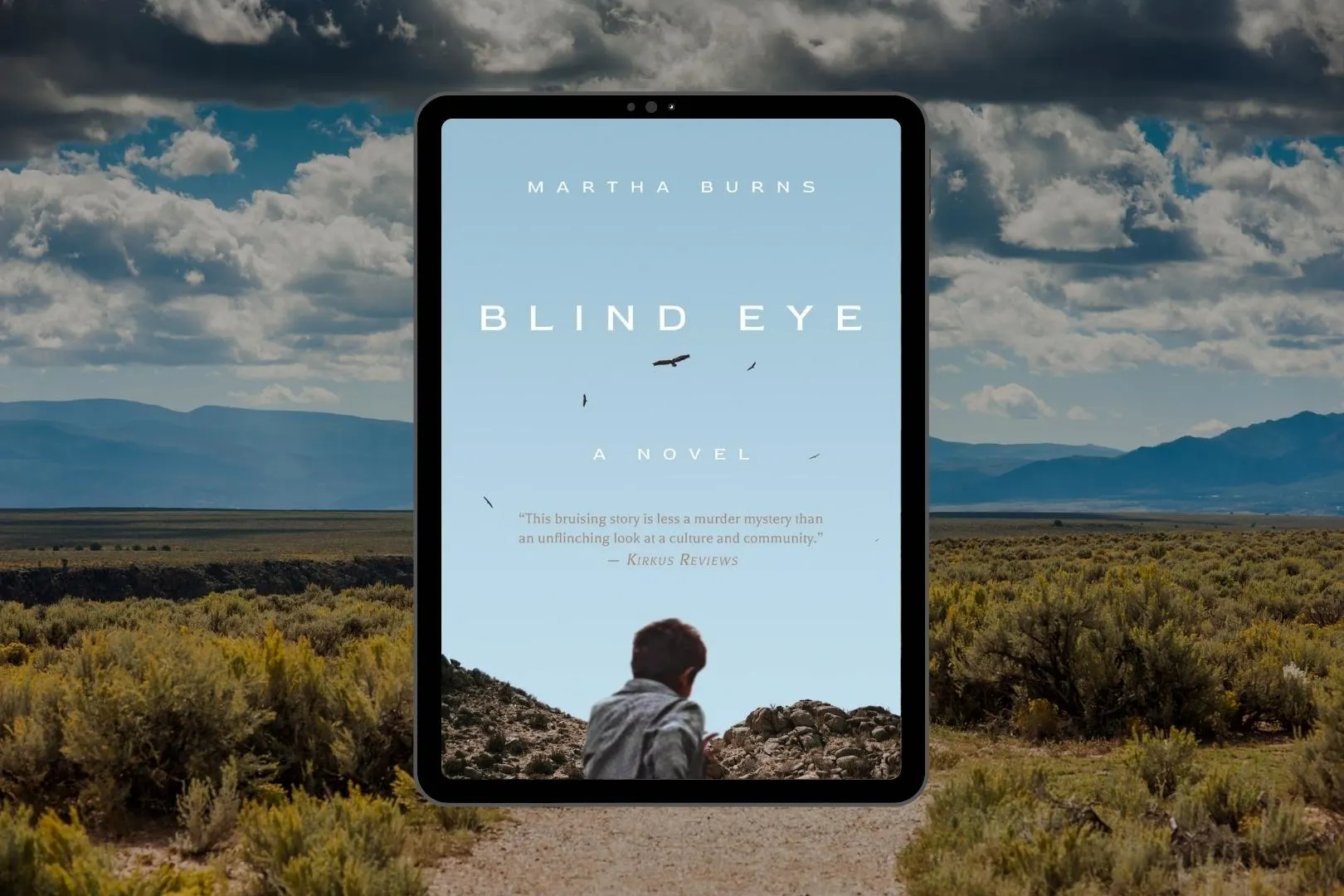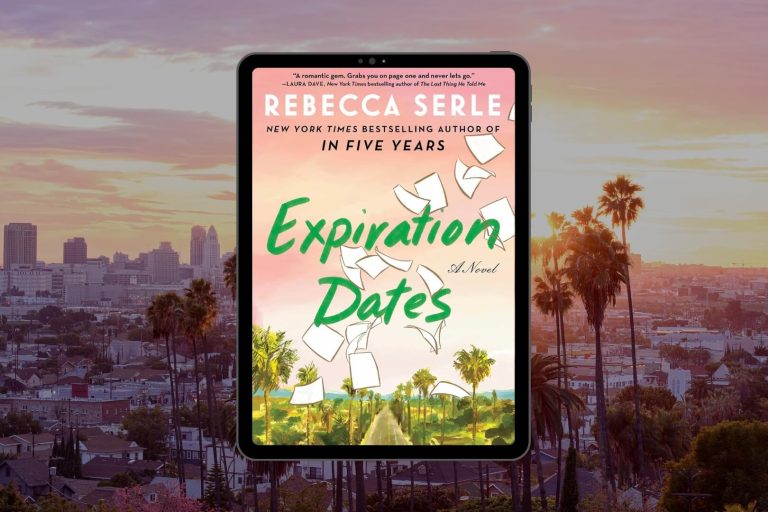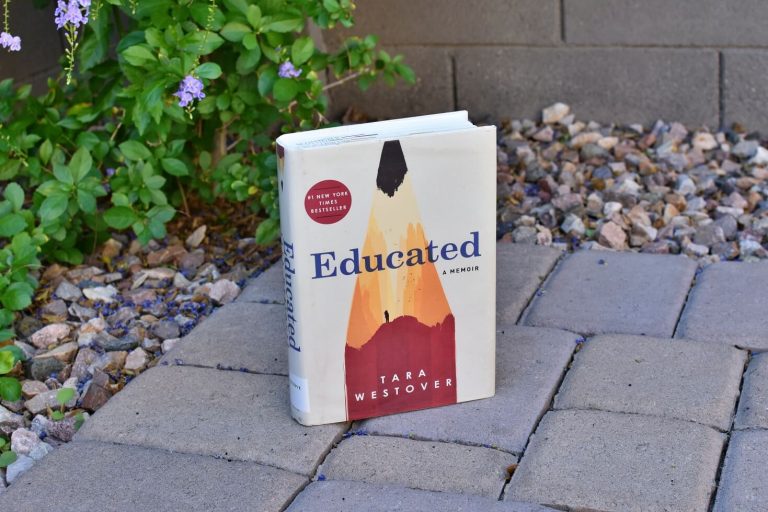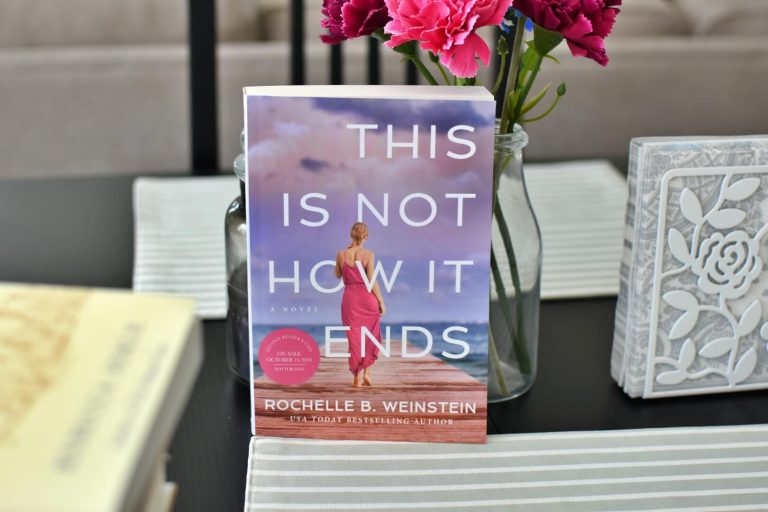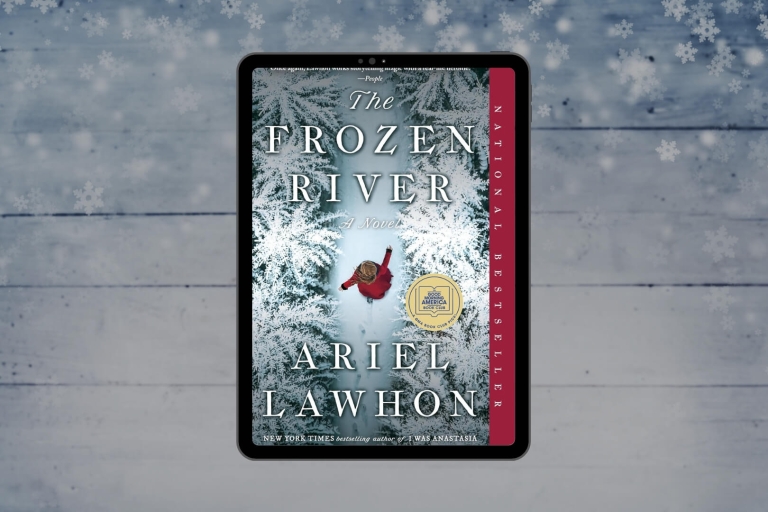Book club questions for Blind Eye by Martha Burns can help focus an in-depth discussion of this compelling novel about complicity and guilt. There will be spoilers so for more context about the book, check out my spoiler-free review first.
Blind Eye is such an impactful story! This is one that will stay with me for a long time.
The Synopsis
At the Bounty Canyon Ranch in Southeastern New Mexico, the bodies of Luke and Deona Pruitt are buried in a manure pit and their 14-year-old son Leeland Pruitt is missing.
Deputy Sheriff Greenwood is called out to investigate the missing Pruitt family and discovers the grim scene. Leeland’s brutal upbringing was an open secret overlooked by neighbors and teachers for years. The community turned a blind eye as Leeland was moved by his cruel father from one remote ranch to another. And so, Deputy Greenwood begins a twenty-four-hour hunt to find and save the boy suspected of murdering his parents.
Blind Eye is both a tragedy and a dilemma of moral conscience. In this tale of cultural complicity, the community, at best, looked the other way and, at worst, enabled abuse, leaving us all to ask, ‘What is too much to ask of a boy?’
Book Club Questions for Blind Eye
- Let’s first discuss the significance of the title, Blind Eye, as it relates to the story as a whole.
- The story is set in Southeastern New Mexico and features quite vivid imagery. What stuck out to you most about the setting?
- We read the story from several different perspectives including Sheriff Greenwood, Luke Pruitt, his mother Linda and more. In addition, the community serves as a chorus of sorts while providing commentary about the events and how they failed Leeland. Why was it important for us to read these different perspectives? How did it help to enhance the story?
- The story switches timelines from 2005 to the past starting in 1992. We learn more about the investigation along with the events that led up to the murders. What is something that stuck out to you when reading about past events?
- Why did Linda kill her husband and then commit suicide? Do you believe that caused a rippling effect into the eventual tragedy with Leeland?
- Luke was abused by his father and in turn, abused his own son. Why do some victims become perpetrators?
- Small communities are oftentimes stereotyped about helping neighbors. But yet, pretty much no one stepped in to help Leeland despite the evidence of abuse. Why do you think so many people decided not to act?
- What would you have done if you were a member of the community?
- As Sheriff Greenwood went through his investigation, did you think Leeland had murdered his father and stepmother or did you wonder if perhaps it was someone else? What were your thoughts when it was revealed to be Leeland?
- Let’s discuss why Leeland took this action. What would have happened to him if he hadn’t?
- Why did Leeland plead not guilty?
- During his opening statement, the defense attorney states, “Look at the man who acts in mercy…and when we get done with that, with asking who my neighbor is, the decisive issue remains: what kind of person am I?” ‘He pointed at himself and then all of us—even the judge.’ What is your impression of those remarks? Why did it hit the community so hard?
- The judge sentenced Leeland to a detention facility where he will remain there until his twenty-first birthday. What will happen to Leeland when he turns twenty-one? Will he still have a chance to turn everything around?
- Throughout the novel, we read snippets of Linda Pruitt’s Ranching Weekly column, which oftentimes appears to give hints at something more sinister at play with ranching life. Why was it important to add her column? Was there one snippet that stuck out to you?
- What are some of the key themes from the novel?
Happy reading!
